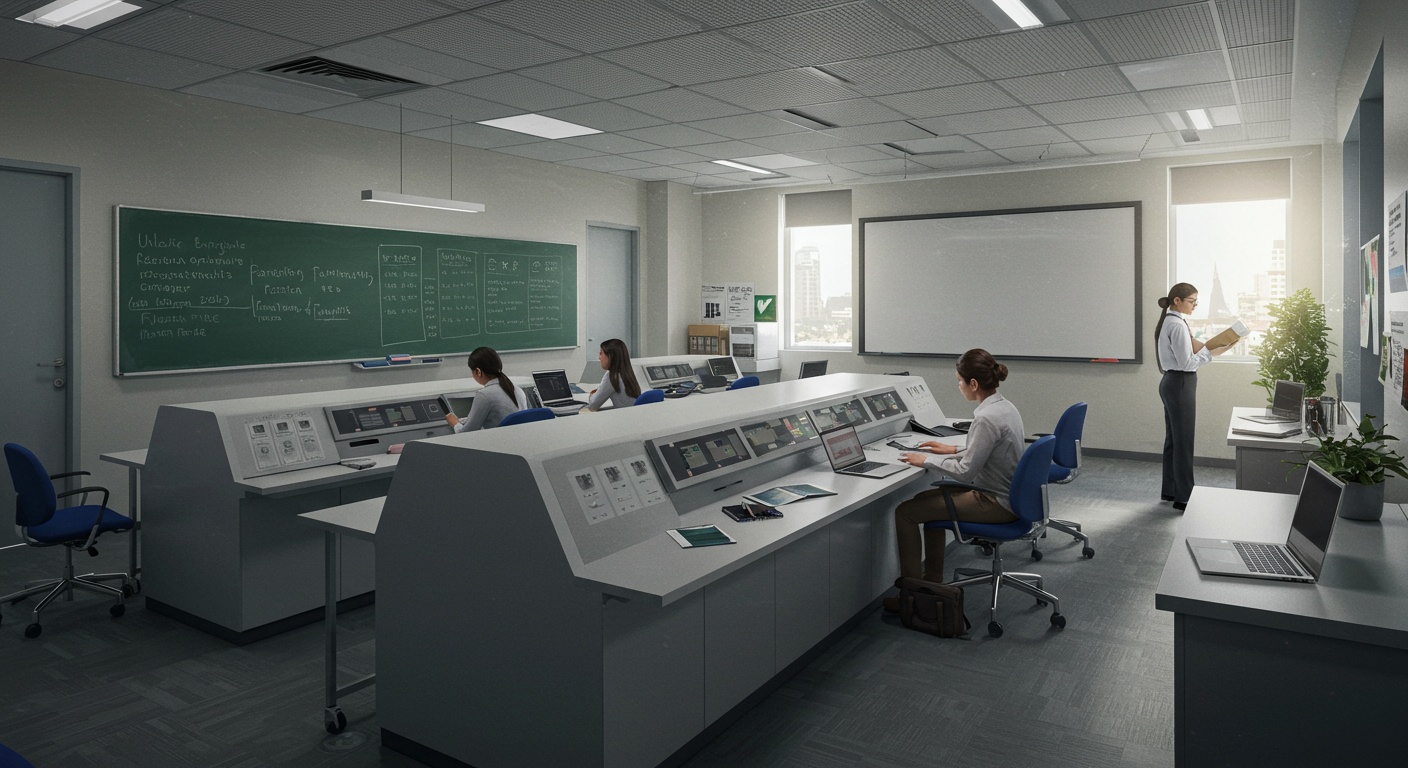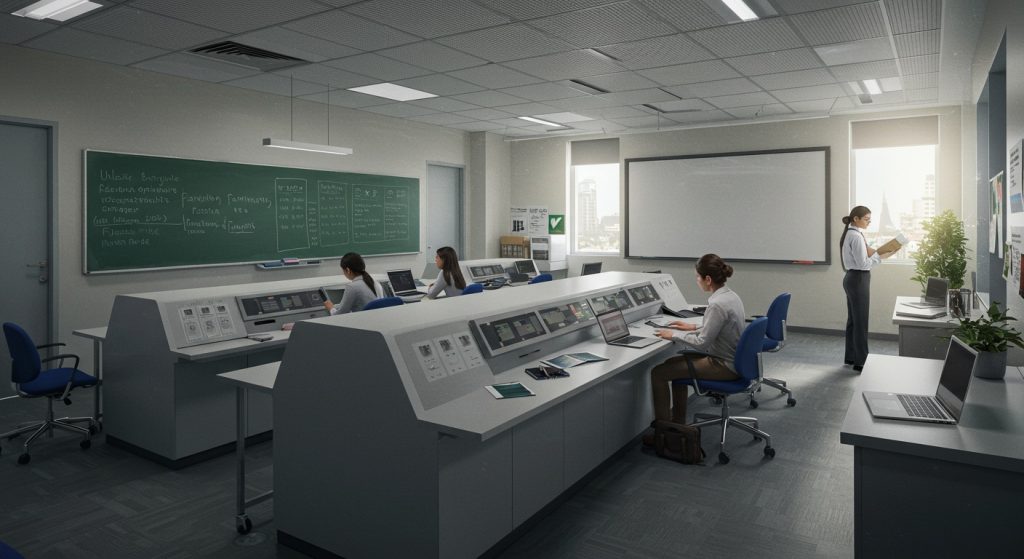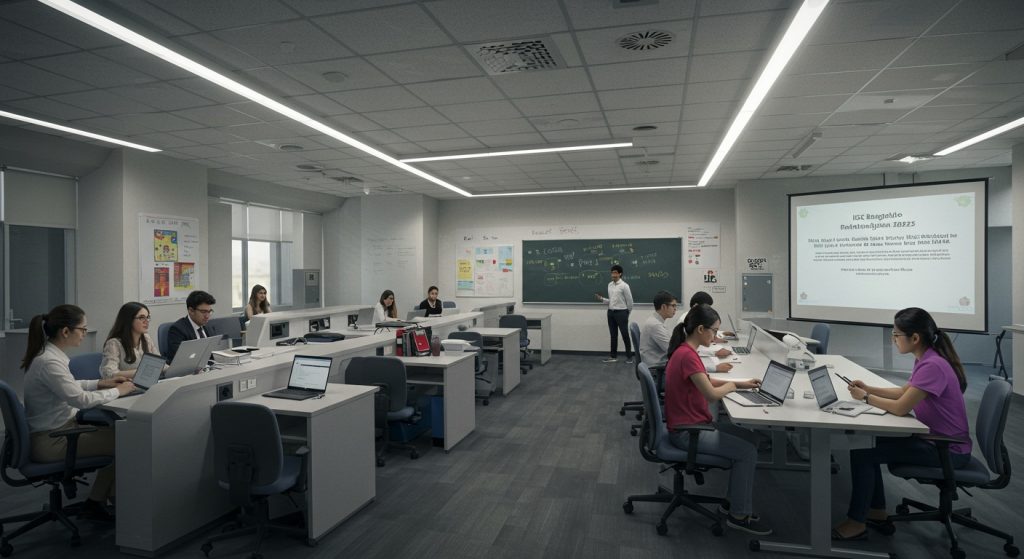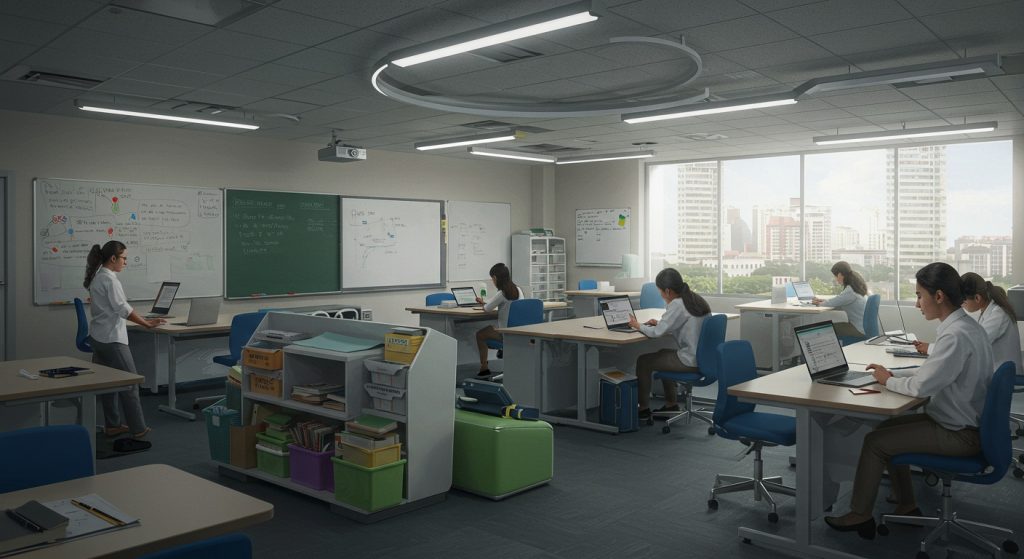Dreaming of contributing to cutting-edge research? IISc Bangalore, a hub for scientific and technological innovation, offers a wealth of opportunities. But navigating the application process and identifying the right research fit can feel daunting. We address this challenge by providing a roadmap to unlock these opportunities. Learn how to effectively identify faculty whose work aligns with your interests, craft a compelling research proposal that showcases your potential. Master the nuances of the application and interview processes. Discover how recent policy changes emphasizing interdisciplinary research and increased international collaborations are reshaping the IISc research landscape, offering unprecedented avenues for ambitious researchers like you.

Navigating the Research Landscape at IISc Bangalore
The Indian Institute of Science (IISc) Bangalore stands as a beacon of research excellence in India. For aspiring researchers, gaining entry and thriving within its academic environment can be a transformative experience. Understanding the research landscape, including its diverse departments, interdisciplinary programs. Funding opportunities, is the first crucial step.
- Departments and Centers: IISc houses a wide range of departments spanning engineering (Aerospace, Electrical, Mechanical, etc.) , science (Physics, Chemistry, Mathematics, etc.). Interdisciplinary areas (Bioengineering, Nanoscience, etc.). Each department has its own research focus, faculty expertise. Laboratory facilities. Understanding the specific strengths of each department is critical for aligning your research interests.
- Interdisciplinary Programs: IISc encourages interdisciplinary research through various centers and initiatives. These programs bring together faculty and students from different departments to tackle complex problems that require a multidisciplinary approach. Examples include the Centre for Sustainable Technologies (CST), the Divecha Centre for Climate Change. The Centre for Brain Research (CBR).
- Research Themes: Identifying overarching research themes at IISc helps you grasp the institute’s priorities and potential areas for collaboration. Current prominent themes include artificial intelligence, materials science, energy, healthcare. Advanced manufacturing.
Identifying Potential Mentors and Research Groups
Choosing the right research mentor is paramount to a successful research career at IISc. Your mentor will guide your research, provide valuable feedback. Help you navigate the academic environment. Here’s how to find the right fit:
- Faculty Profiles: IISc’s website provides detailed profiles of each faculty member, including their research interests, publications, ongoing projects. Contact details. Carefully review these profiles to identify faculty whose research aligns with your interests.
- Publications and Projects: assess the faculty’s recent publications and ongoing research projects to gain a deeper understanding of their current research focus. Look for publications in reputable journals and conference proceedings.
- Research Group Websites: Many research groups maintain their own websites, which provide details about their research activities, members. Available positions. These websites can offer a more detailed view of the group’s dynamics and research environment.
- Networking: Attending seminars, workshops. Conferences organized by IISc provides opportunities to network with faculty and students. These interactions can help you learn more about their research and assess whether their research group would be a good fit for you.
- Reaching Out: Don’t hesitate to contact faculty members whose research interests you. A well-crafted email expressing your interest in their research and asking about potential research opportunities can be a great way to initiate a conversation.
Admission Pathways: PhD, Masters. Research Internships
IISc offers several pathways for aspiring researchers to join its academic community. The most common pathways include PhD programs, Masters programs with a research component. Research internships. Understanding the eligibility criteria and admission process for each pathway is essential.
- PhD Programs: The PhD program is the most direct route to conducting in-depth research at IISc. Admission to the PhD program typically requires a strong academic record, a relevant Master’s degree. A qualifying score on national-level entrance exams such as GATE or CSIR-NET. The selection process usually involves a written test and an interview.
- Masters Programs: IISc offers various Masters programs, some of which include a significant research component. These programs provide an opportunity to gain research experience and potentially transition to a PhD program.
- Research Internships: Research internships provide a short-term opportunity to work on a specific research project under the guidance of a faculty member. Internships can be a valuable way to gain research experience and assess whether IISc is the right place for you. Several internship programs are available, including those offered by IISc itself and external organizations like the Indian Academy of Sciences.
Crafting a Compelling Application
A strong application is crucial for gaining admission to IISc’s research programs. Your application should highlight your academic achievements, research experience. Motivation for pursuing research at IISc.
- Statement of Purpose (SOP): The SOP is your opportunity to articulate your research interests, explain why you want to study at IISc. Describe how your skills and experience align with the research being conducted at IISc. A well-written SOP should be clear, concise. Compelling.
- Letters of Recommendation: Letters of recommendation from professors or researchers who know you well can significantly strengthen your application. Choose recommenders who can speak to your research abilities, work ethic. Potential for success in a research environment. Provide your recommenders with ample time and data to write a strong letter.
- Academic Transcripts: Submit official transcripts of your academic records, highlighting your grades and coursework relevant to your research interests.
- Publications and Presentations: If you have any publications or presentations, be sure to include them in your application. These demonstrate your research experience and ability to communicate your findings.
Funding Opportunities and Fellowships
Funding is a crucial aspect of pursuing research at IISc. Several funding opportunities and fellowships are available to support researchers, both from the institute itself and from external organizations.
- IISc Fellowships: IISc offers various fellowships to PhD students and postdoctoral researchers. These fellowships provide financial support for living expenses and research activities.
- Government Fellowships: Several government agencies, such as the Council of Scientific and Industrial Research (CSIR) and the University Grants Commission (UGC), offer fellowships to support research in various fields.
- External Funding Agencies: Numerous external funding agencies, both national and international, provide grants and fellowships for research projects. These agencies include the Department of Science and Technology (DST), the Wellcome Trust. The National Science Foundation (NSF).
A Comparison of Key Entrance Exams for IISc
Several entrance exams are commonly used for admission to IISc. Here’s a comparison of some of the most prominent ones:
| Exam | Administering Body | Relevance to IISc | Focus Areas |
|---|---|---|---|
| GATE (Graduate Aptitude Test in Engineering) | IISc Bangalore (on behalf of MHRD) | Widely accepted for PhD and Masters programs in Engineering and Sciences | Engineering subjects (e. G. , Computer Science, Electrical Engineering, Mechanical Engineering) and Sciences (e. G. , Physics, Chemistry, Mathematics) |
| CSIR-NET (Council of Scientific and Industrial Research – National Eligibility Test) | National Testing Agency (NTA) | Accepted for PhD programs in Science disciplines | Life Sciences, Chemical Sciences, Mathematical Sciences, Physical Sciences, Earth Sciences |
| JEST (Joint Entrance Screening Test) | Participating Institutes (including IISc) | Primarily for PhD programs in Physics and Theoretical Computer Science | Physics, Theoretical Computer Science |
| NBHM (National Board for Higher Mathematics) | Department of Atomic Energy (DAE) | For PhD programs in Mathematics | Mathematics |
Real-World Applications and Impact of Research at IISc Bangalore
IISc’s research has a significant impact on society through various real-world applications. Here are a few examples:
- Healthcare Technologies: IISc researchers are developing innovative healthcare technologies, such as diagnostic tools, drug delivery systems. Medical devices. These technologies have the potential to improve healthcare outcomes and reduce healthcare costs. For instance, research on developing affordable diagnostic tools for early detection of diseases has had a significant impact in rural areas.
- Sustainable Technologies: The Centre for Sustainable Technologies (CST) at IISc is working on developing sustainable solutions for energy, water. Waste management. These technologies aim to address environmental challenges and promote sustainable development. Projects related to solar energy, wastewater treatment. Solid waste management are actively contributing to a cleaner and more sustainable environment.
- Artificial Intelligence: IISc is at the forefront of AI research in India, with researchers working on developing AI algorithms and applications for various fields, including healthcare, transportation. Manufacturing. AI-powered solutions for image recognition, natural language processing. Robotics are being developed and deployed in various sectors.
- Materials Science: Research in materials science at IISc is leading to the development of new materials with enhanced properties for various applications, including aerospace, energy. Electronics. Development of lightweight and high-strength materials for aerospace applications and advanced materials for energy storage are examples of this impact.
Leveraging Resources and Support Systems at IISc
IISc provides a wide range of resources and support systems to help researchers succeed. These resources include:
- Central Library: The IISc library is one of the best research libraries in India, with a vast collection of books, journals. Online resources.
- Central Instrumentation Facility (CIF): The CIF provides access to state-of-the-art equipment for research in various fields.
- Computing Facilities: IISc has excellent computing facilities, including high-performance computing clusters and software resources.
- Student Support Services: IISc offers various student support services, including counseling, career guidance. Accommodation.
- Entrepreneurship Cell: IISc has an active entrepreneurship cell that supports students and faculty in commercializing their research findings.
Conclusion
Approaching IISc Bangalore’s research landscape is more than just ticking boxes; it’s about aligning your passion with the institute’s cutting-edge work. Consider this guide your initial blueprint. Remember that true success lies in personalized exploration. One common pitfall I’ve observed is students underestimating the importance of directly connecting with faculty whose research resonates with them. Don’t hesitate to reach out, even with a simple email outlining your interest and relevant skills. Best practices include tailoring your application materials to each specific lab and showcasing your problem-solving abilities beyond just academic scores. The research landscape is rapidly evolving, particularly in areas like AI and sustainable technologies. To truly excel, invest in continuous learning through online courses and industry publications. Your journey at IISc has the potential to be transformative, not just for your career. For the advancement of knowledge itself. Embrace the challenge and contribute to shaping the future. You can also read more about innovative research at other IITs to get more insights here.
More Articles
Ace IIT JEE: A Winning Preparation Strategy For 2025 Aspirants
Most Promising IIT Branches: Future Career Opportunities In 2025
Matching Your Passions: How To Pick The Right IIT For You?
IIT Admission Guide: Navigating The Process As An International Student
FAQs
So, I hear IISc is a research powerhouse. What kind of research areas are they really strong in?
You’ve heard right! IISc is a big deal. They’re particularly renowned for their work in engineering (think aerospace, electrical, mechanical), basic sciences (physics, chemistry, biology). Interdisciplinary areas like materials science and nanoscience. But honestly, they cover a pretty broad spectrum, so poke around their website to see what labs are doing that spark your interest.
Okay, cool. What’s the usual path for getting involved in research there – like, specifically if I’m not already a student?
Good question! Typically, you’d look at options like research assistant positions, project associate roles, or even applying for a PhD program. Keep an eye on their recruitment pages, individual department websites. Even LinkedIn for openings. Sometimes professors will also have opportunities listed on their personal websites.
What if I am a student, maybe at another university? Are there any internships or summer programs I could try?
Absolutely! IISc frequently offers summer research internships. Keep an eye out for announcements, usually starting around early spring. These are highly competitive, so make sure your application is top-notch. Show off your skills and explain why you’re super excited about the specific research area.
This all sounds great. What about funding? Does IISc offer any scholarships or fellowships for researchers?
Definitely. IISc offers a range of scholarships and fellowships, especially for PhD students. Check the admissions or financial aid section of their website for the latest details. External funding sources like CSIR, UGC. DST are also common ways to fund research at IISc, so it’s worth exploring those avenues too.
What qualities are IISc profs really looking for in aspiring researchers? Besides just good grades, obviously.
Right, grades are vital. They want to see passion and initiative. Demonstrate genuine interest in the research area, show that you’ve done your homework (read their papers!). Highlight any relevant skills or experiences you have. Curiosity and a willingness to learn are huge pluses.
Is it okay to just email a professor directly, even if there’s no official opening advertised?
You can definitely try! Keep it brief, professional. Personalized. Mention why you’re interested in their research specifically. Attach your CV. Don’t be discouraged if you don’t get a response – professors are incredibly busy. But a well-crafted email shows initiative. It might just land you an opportunity.
Okay, last one! What’s one piece of advice you’d give someone trying to break into research at IISc?
Network, network, network! Attend seminars, workshops. Conferences related to your field. Connect with IISc researchers on LinkedIn. The more people you know, the more opportunities you’ll uncover. Plus, talking to people already doing the work can give you invaluable insights and guidance.



